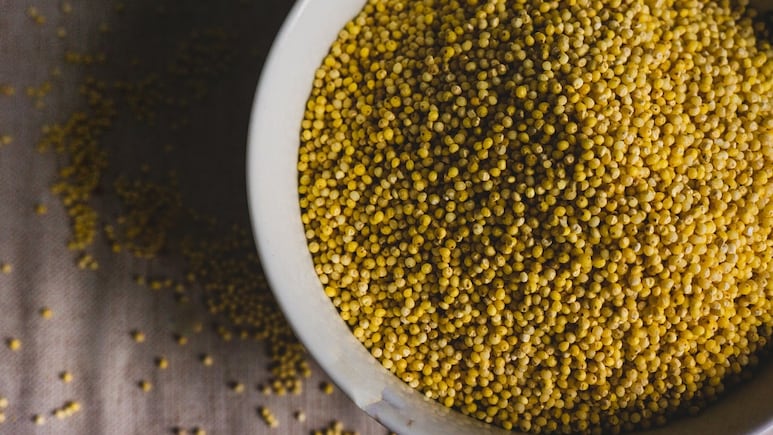
Millets are gaining popularity as superfoods because of their impressive nutrient profile. They are a great source of phosphorus, magnesium, and copper, and their high fibre content makes them beneficial for weight loss, blood sugar regulation, and even digestion.
But with so many varieties of millets available in the market, people often get confused about which one to include in their diet. To clear the air, nutritionist Rashi Chowdhary has shared a 60-second millet guide where she has explained the benefits of each type of millet.
If you have a sensitive gut, go for barnyard millet or samak rice. It is naturally gluten-free, easy to digest, and gentle on the stomach. If you want more fibre, then opt for jowar or bajra. They contain 80 to 85 percent more fibre, which means you feel fuller for longer and get real bulk even with smaller portions.
If you need more protein, quinoa is the best option. Its amino acid profile is excellent, and it has a high protein quality score of 0.8, while most other millets range between 0.2 and 0.5. If you are diabetic, insulin-resistant, or simply want stable blood sugar levels, little millet is a good choice because of its low glycemic load. In case it's hard to find, you can opt for barnyard millet instead.
If you want more calcium, go with ragi. It contains nearly 10 times more calcium than other millets. She suggested that for all types of millets, nutrient absorption improves if you sprout, soak, or ferment them, as this reduces their oxalate content.
Ms Chowdhary further mentioned that if some can't digest millets or bloat after high fibre meals even though they are considered "healthy," then it's because of a weak gut lining.
Millets naturally contain phytates and anti-nutrients that can irritate a weak gut, causing gas, reflux, bloating and indigestion. But the good part is that you can heal your gut lining and build tolerance gradually, she added.
Disclaimer: This content including advice provides generic information only. It is in no way a substitute for a qualified medical opinion. Always consult a specialist or your own doctor for more information. NDTV does not claim responsibility for this information.
Track Latest News Live on NDTV.com and get news updates from India and around the world

